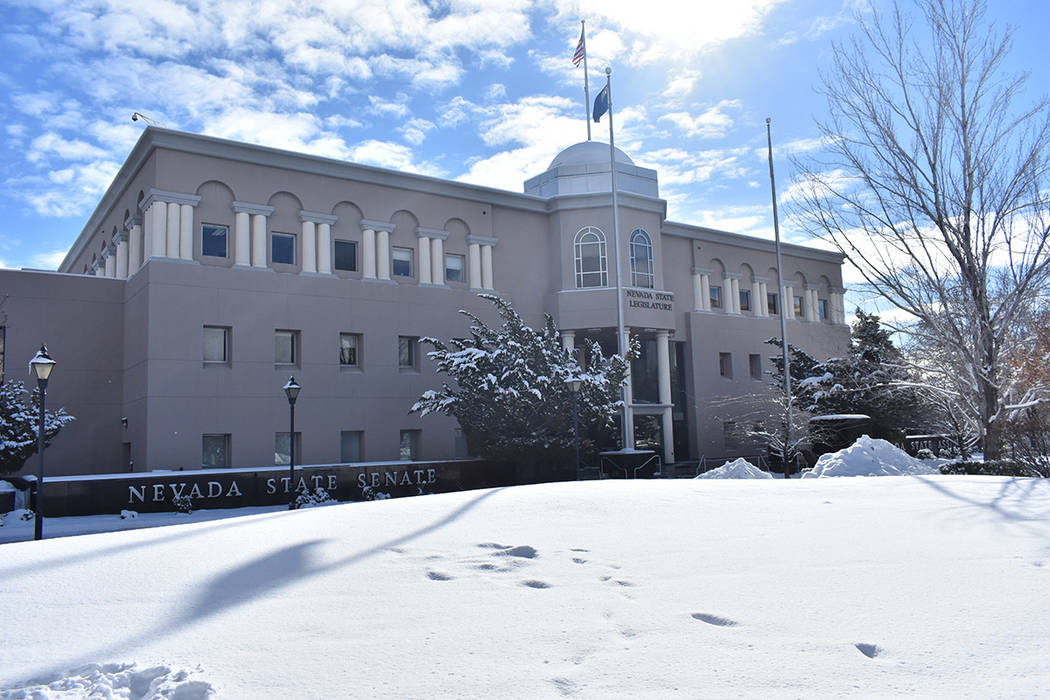STEVE SEBELIUS: Who do legislative lawyers really represent?
Who does the Nevada Legislative Counsel Bureau actually represent?
Is it the Legislature as an institution? Legislative leaders? Individual lawmakers?
That intriguing question has emerged as a side skirmish in a legal fight over a pair of tax bills passed by the 2019 Legislature. And far from being an academic discussion, the answer may force taxpayers to shell out a lot more for legal staff going forward.
First, a little history: The Legislature in 2019 passed two bills, one of which extended a DMV technology fee that was supposed to expire and another that prevented the state payroll tax from falling to a lower rate.
Republicans voted against both and contended the Legislature needed a two-thirds vote to pass each under a constitutional provision which says any bill that “creates, generates or increases” state revenue in any form requires a supermajority.
But — in response to a request from Senate Majority Leader Nicole Cannizzaro and Assembly Speaker Jason Frierson — the Legislative Counsel Bureau wrote a memo that concluding that state revenue wouldn’t increase so only a simple majority was needed.
In the Assembly, Democrats had more than two-thirds. But in the Senate, Democrats were one vote short and passed the bills 13-8.
Every Republican senator — and a few businesses affected by the new taxes — sued the state, the Department of Taxation, the DMV … and Cannizzaro.
That in itself is interesting because constitutional challenges are generally filed against only the state and its officials. Adding Cannizzaro (along with Lt. Gov. Kate Marshall and Gov. Steve Sisolak) as defendants appears to serve a political purpose more than a legal one.
After a preliminary exchange of legal papers, the Republicans made a motion to disqualify the Legislative Counsel Bureau from representing Cannizzaro, contending its lawyers had a conflict because they advise Republicans and Democrats alike. And Carson City District Court Judge James Todd Russell agreed, saying the bureau couldn’t represent Cannizzaro but could represent the Legislature as a whole as an intervenor.
That brings us to the Nevada Supreme Court, where the bureau is arguing for its ability to continue to represent Cannizzaro.
First, the issue isn’t about conflicts: The bureau’s lawyers acknowledge they advise Republicans and Democrats equally, even when their interests are at odds. That might be against the rules for a private lawyer, but the rules make exceptions for government lawyers when the law allows.
Second, according to Kevin Powers, the bureau’s chief litigation counsel, the bureau is unlike private lawyers in another way: Its nonpartisan lawyers strictly give legal advice, not policy guidance or strategic direction. And the bureau’s lawyers don’t share what they hear from one lawmaker with another. “We jealously guard the information we receive,” he said.
Third, if Russell’s ruling holds, it’s possible the Legislature will have to hire more lawyers, assigning them to advise Republicans and Democrats separately or even members of the same party who have sharp disagreements. That could radically increase costs for the biennial sessions and transform Carson City’s lawmaking process into one that looks more like the one in Washington, D.C. (Irony alert: This would come as the result of a Republican motion!)
If the Legislative Counsel Bureau can’t represent the Legislature in lawsuits, “then every time such a lawsuit is filed, the governmental entity would be deprived of its statutorily authorized counsel, and it would be required to employ outside legal counsel in every such case at considerable expense to the taxpayers,” Powers wrote in a motion before the Supreme Court.
And not only that, it could happen every time a city council member, county commissioner or school board trustee decides to sue his or her city, county or district.
There are those who argue this could be a good thing, that the counsel bureau faces too many conflicts — real and perceived — to be effective and that partisan counsel is long overdue. This lawsuit may open the door to that.
But at least one expert says that Russell got it wrong and that Legislative Counsel Bureau lawyers are doing their jobs properly.
“I don’t think it’s even a cosmetic violation of the conflict provisions,” said Boyd Law School professor Jeffrey Stempel. “If the trial court’s opinion were to hold, you’d have to organize the way lawmaking is done in ways that would be pretty inefficient.”
The bureau has asked the Supreme Court to rule by Monday, so we may get clarity soon. And only then will the arguments over the tax bills begin.
Contact Steve Sebelius at SSebelius@reviewjournal.com or 702-383-0253. Follow @SteveSebelius on Twitter.








